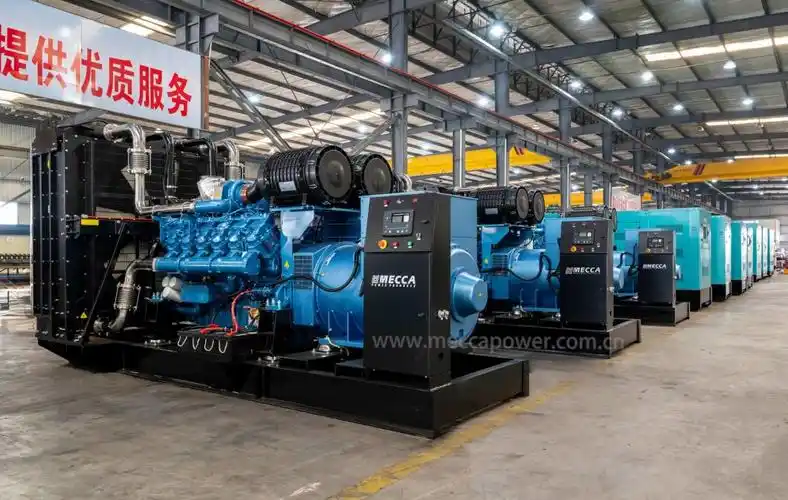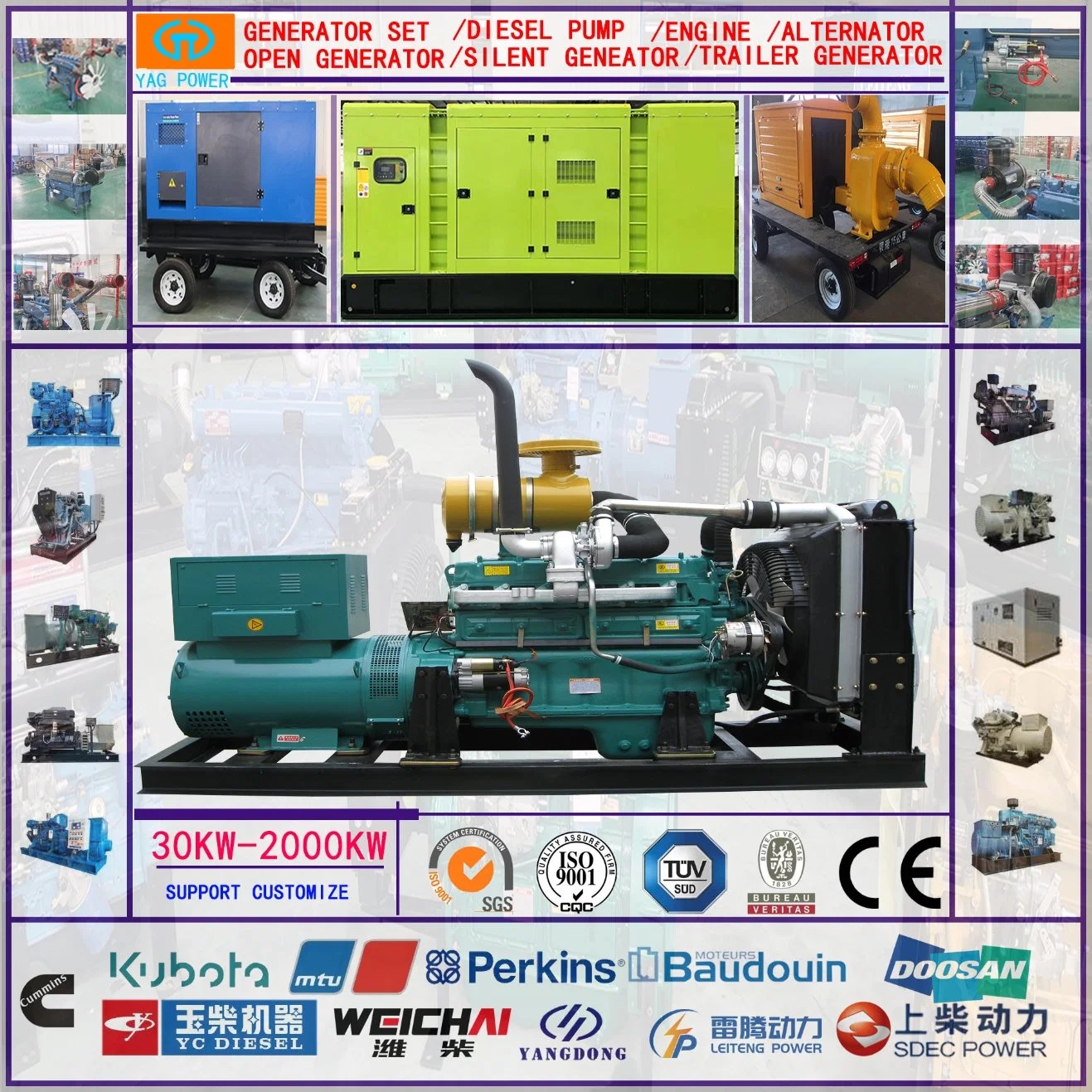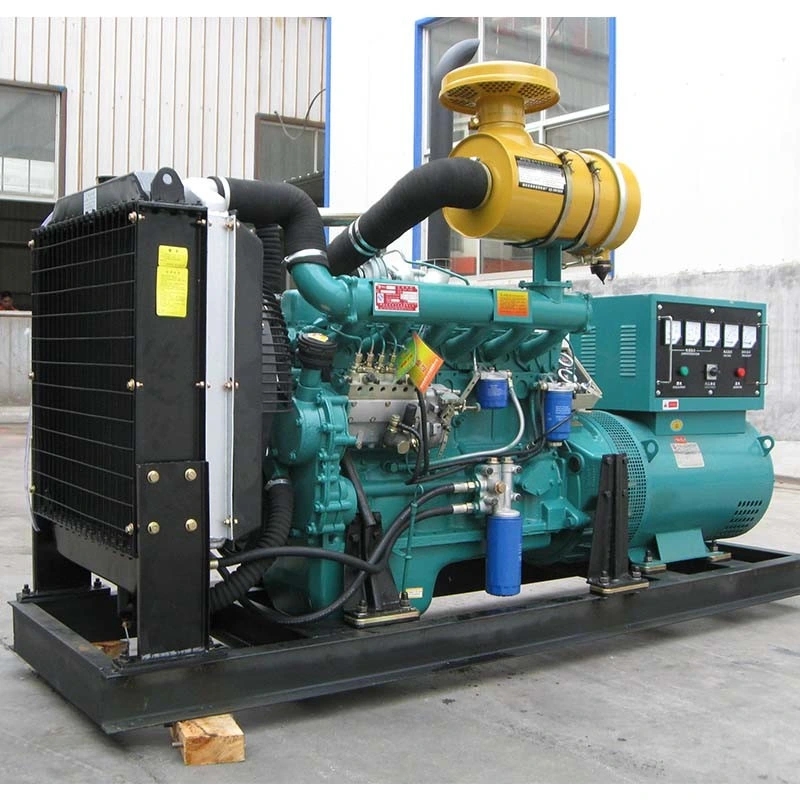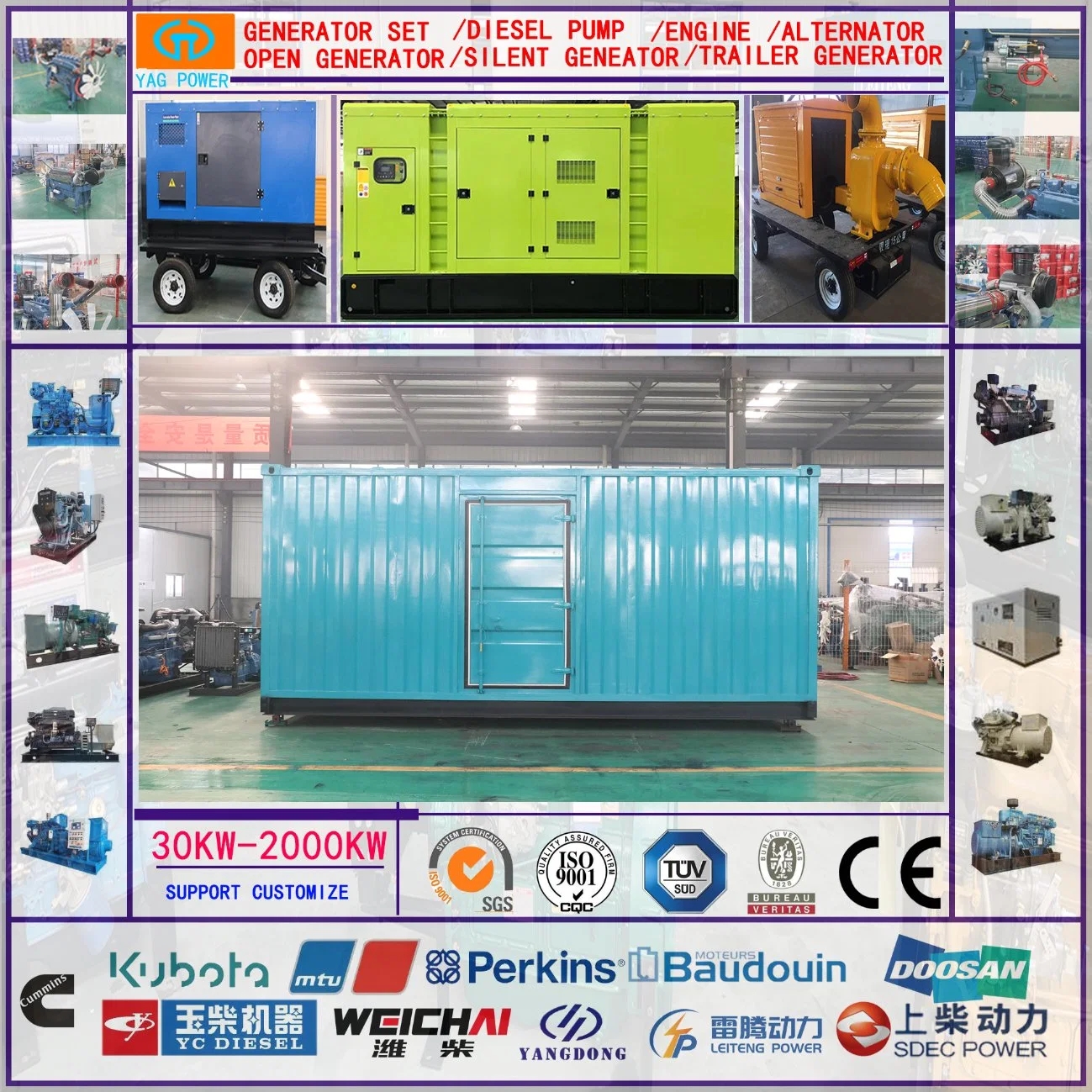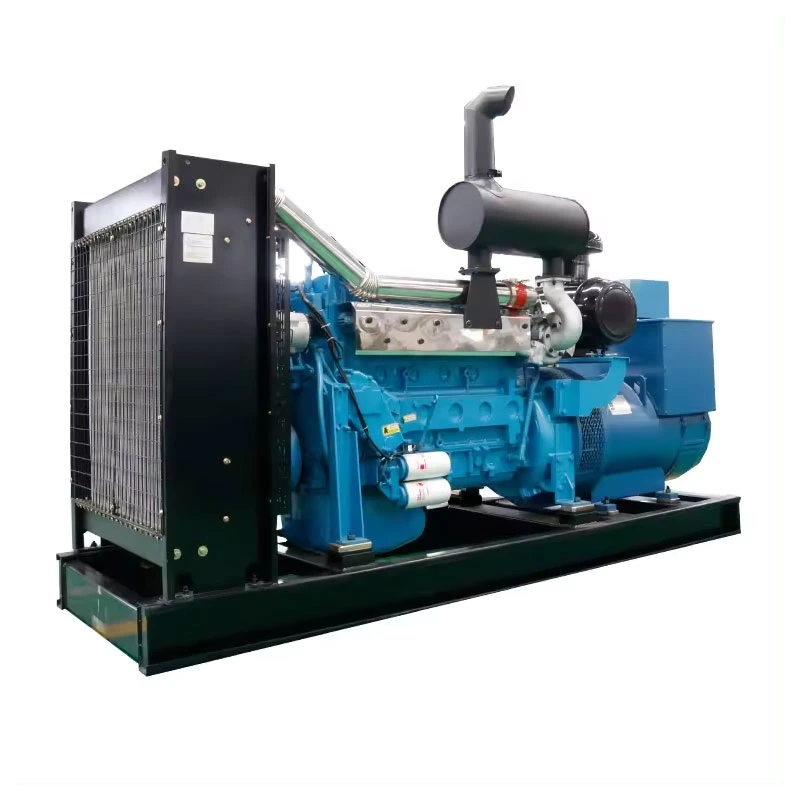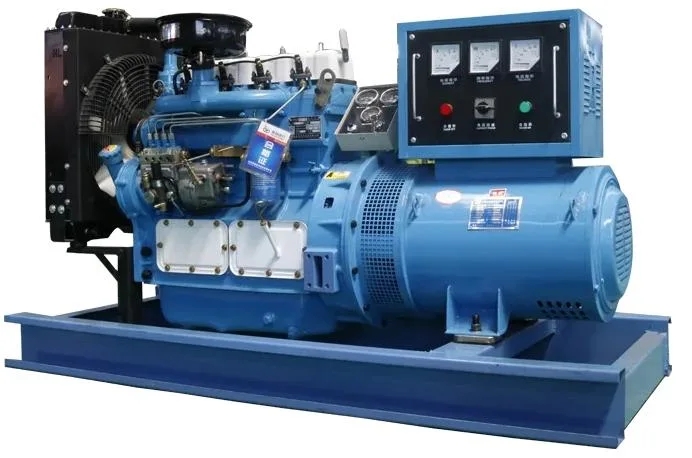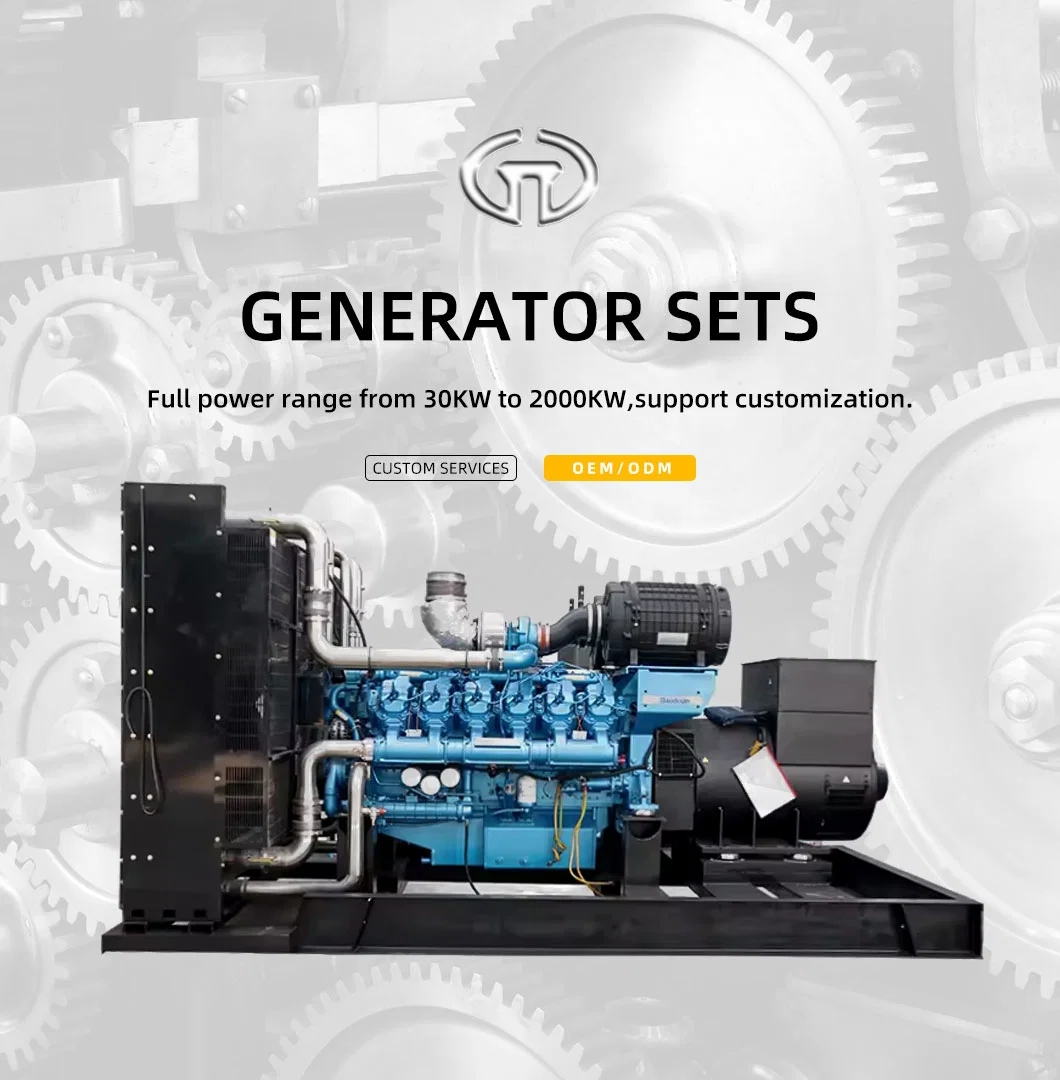Table of Contents
ToggleIntroduction
When it comes to keeping the lights on, especially in critical situations, nothing beats the reliability of a diesel generator. Imagine you’re hosting a big event, or worse, you’re in the middle of an important business operation, and boom—the power goes out. That’s where a trusty 400kW diesel generator comes into play. This article dives deep into what makes these powerhouses tick and why you might want to consider investing in one.
What is a 400kW Diesel Generator?
Definition and Specifications
So, what exactly is a 400kW diesel generator? Simply put, it’s a generator with a power output of 400 kilowatts, powered by diesel fuel. These generators are designed to provide substantial power for various needs, from industrial applications to emergency power supply. They typically feature robust engines, advanced control systems, and high-quality alternators that ensure stable and reliable power output.
Key Features
Let’s break down some of the key features that make a 400kW diesel generator stand out:
- Robust Engine: The heart of any diesel generator is its engine. A 400kW diesel generator is equipped with a powerful engine designed to handle high loads efficiently.
- Advanced Control Systems: Modern generators come with sophisticated control systems that allow for precise monitoring and control of the generator’s performance.
- High-Quality Alternator: The alternator converts mechanical energy into electrical energy. A high-quality alternator ensures stable and consistent power output.
- Fuel Efficiency: Diesel engines are known for their fuel efficiency, which means you get more power per unit of fuel consumed.
- Durability: Built to last, these generators can operate for thousands of hours with proper maintenance.

Benefits of Using a 400kW Diesel Generator
Reliability and Durability
One of the standout features of diesel generators is their reliability. Unlike other types of generators, diesel engines are built to last, often running for thousands of hours before requiring significant maintenance. They are like the marathon runners of the generator world, designed for endurance and long-term use. This makes them an ideal choice for applications where continuous power supply is critical.
Cost-Efficiency
Let’s talk money—because who doesn’t want to save a few bucks? Diesel fuel is generally more efficient than gasoline, which means you get more bang for your buck. Plus, the longevity of these machines often translates to lower overall costs in the long run. Think of it as an investment that pays dividends over time. You’ll find that while the initial cost may be higher than some alternatives, the total cost of ownership over the lifespan of the generator is much lower.
Fuel Efficiency
Diesel engines are known for their fuel efficiency. They consume less fuel per unit of power produced compared to their gasoline counterparts. This makes them not only cost-effective but also less demanding on fuel resources, making them a win-win for your wallet and the environment. Additionally, advancements in engine technology have led to even greater fuel efficiency, making modern diesel generators more eco-friendly than ever before.
Applications of 400kW Diesel Generators
Industrial Uses
In the industrial sector, downtime can mean huge losses. A 400kW diesel generator can provide the necessary power to keep machinery running smoothly, ensuring that production lines stay operational even during power outages. From manufacturing plants to construction sites, these generators are the unsung heroes that keep things ticking along. They can power heavy machinery, lighting systems, and other critical equipment essential for industrial operations.
Commercial Applications
Whether you own a shopping mall, a data center, or even a hospital, a 400kW diesel generator ensures that your operations remain uninterrupted. In places where continuous power is critical, these generators act as a reliable backup, ready to kick in at a moment’s notice. For businesses that rely on electronic systems and data storage, having a dependable power source can prevent data loss and equipment damage.
Emergency Power Supply
When disaster strikes, having a reliable power source can be a lifesaver—literally. Hospitals, emergency response centers, and even residential complexes benefit from having a 400kW diesel generator on standby. These generators provide peace of mind knowing that you’re prepared for any eventuality. In emergency situations, they can power life-saving medical equipment, communication systems, and other essential services.
How Does a 400kW Diesel Generator Work?
Basic Working Principle
At its core, a diesel generator converts mechanical energy into electrical energy using a diesel engine coupled with an alternator. The diesel engine burns fuel to produce mechanical energy, which then turns the alternator rotor to generate electricity. It’s like turning kinetic energy into electric magic! The process involves several stages:
- Fuel Combustion: Diesel fuel is injected into the engine’s combustion chamber where it mixes with air and ignites under high pressure.
- Mechanical Movement: The combustion process drives pistons connected to a crankshaft, converting chemical energy into mechanical energy.
- Electric Generation: The mechanical energy rotates the alternator’s rotor within a magnetic field, inducing an electric current in the stator windings.
- Power Output: The generated electricity is then regulated and distributed to power various loads.
Components and Functions
A typical 400kW diesel generator comprises several key components: the diesel engine, alternator, fuel system, cooling system, exhaust system, lubrication system, and control panel. Each part plays a vital role in ensuring the generator runs smoothly and efficiently.
- Diesel Engine: Provides the mechanical energy needed to drive the alternator.
- Alternator: Converts mechanical energy into electrical energy.
- Fuel System: Stores and supplies diesel fuel to the engine.
- Cooling System: Prevents overheating by dissipating excess heat generated during operation.
- Exhaust System: Channels exhaust gases away from the engine.
- Lubrication System: Reduces friction between moving parts to prevent wear and tear.
- Control Panel: Allows operators to monitor and control various aspects of the generator’s performance.
Power Requirements
Before you even think about buying a generator, you need to assess your power needs. A 400kW generator is no small investment, so make sure it matches your requirements. Calculate your total power consumption to ensure you’re not under or overestimating what you need. Consider both your peak and average power demands. It’s crucial to account for the startup power requirements of your equipment, which can be significantly higher than their running power needs.
Brand Reputation
Not all generators are created equal. Some brands have earned their reputation through years of reliability and quality service. Do your homework; read reviews and maybe even talk to other users before making your decision. A good brand will offer better support and warranties, giving you peace of mind with your purchase. Look for brands that are known for their durable engines, efficient fuel consumption, and comprehensive customer service.
Maintenance and Support
Speaking of support, don’t overlook maintenance requirements. Regular upkeep is essential for any machine’s longevity, and diesel generators are no exception. Opt for a brand that offers easy access to spare parts and has a robust support network. You’ll thank yourself later when something needs fixing or replacing. Additionally, some manufacturers offer maintenance contracts or extended warranties, which can further ease the burden of upkeep.
Installation and Setup
Site Preparation
Installing a 400kW diesel generator isn’t just about plugging it in and hitting the switch. You need to prepare the site properly—think about ventilation, space for maintenance access, and proximity to fuel sources. Proper planning can save you a lot of headaches down the line. Ensure the site is level and has adequate drainage to prevent water accumulation around the generator. It’s also wise to consider soundproofing if the generator is located near residential areas or offices.
Safety Considerations
Safety first! Always ensure that your installation complies with local regulations and standards. Improper setup can lead to dangerous situations like fuel leaks or electrical hazards. It’s always best to consult with professionals who know the ins and outs of generator installation. They can help you adhere to safety codes and ensure that all electrical connections are secure and correctly rated for the generator’s output.
Professional Installation
Given the complexity and size of a 400kW diesel generator, professional installation is highly recommended. Experts can ensure that everything is set up correctly and safely, giving you one less thing to worry about. They will handle everything from connecting the generator to your building’s electrical system to testing its functionality and ensuring it runs smoothly.
Maintenance Tips for Longevity
Regular Inspections
Think of your generator as you would your car—it needs regular check-ups to run smoothly. Routine inspections can catch minor issues before they become major problems. Regularly check fluid levels, filters, and other critical components to keep everything in tip-top shape. Make it a habit to inspect your generator monthly and perform more thorough checks every six months or annually, depending on usage.
Fuel Management
Diesel fuel can degrade over time, leading to issues like clogged filters or reduced efficiency. Implementing good fuel management practices ensures that your generator runs smoothly whenever it’s needed. Regularly check fuel quality and storage conditions to avoid any hiccups down the line. Use additives if necessary to stabilize the fuel and prevent microbial growth in the fuel tank.
Spare Parts and Accessories
Keeping some spare parts on hand can be a lifesaver when something goes wrong. Filters, belts, and other consumables should be readily available so you can perform quick fixes without having to wait for parts to be delivered. Think of it as having a first-aid kit for your generator! Additionally, consider investing in essential accessories like battery chargers and block heaters, which can improve the reliability of your generator during startup.
Environmental Impact
Emissions and Regulations
Diesel generators are subject to strict environmental regulations aimed at reducing harmful emissions. It’s essential to ensure that your generator complies with these standards to avoid fines and contribute positively to environmental conservation efforts. Some modern generators come with advanced emission control technologies that make them more eco-friendly. Look for generators that meet or exceed EPA (Environmental Protection Agency) standards for reduced emissions.
Eco-Friendly Alternatives
While diesel generators are incredibly reliable, they’re not always the greenest option out there. Exploring alternatives like biodiesel or hybrid systems can offer more sustainable solutions without compromising on reliability or efficiency. It’s like going green without sacrificing performance! Biodiesel blends can significantly reduce carbon emissions, while hybrid systems combine traditional diesel engines with renewable energy sources like solar panels for even greater environmental benefits.
Conclusion
In summary, a 400kW diesel generator is an invaluable asset for anyone needing reliable and efficient power supply solutions—be it for industrial purposes or emergency backup power. With proper installation and regular maintenance, these generators can serve you faithfully for many years. So why not invest in peace of mind? After all, isn’t it comforting to know that when everything else fails, your trusty generator won’t?
Whether you’re an industrial plant manager looking to keep operations running smoothly, a business owner needing an uninterrupted power supply, or simply someone preparing for unexpected emergencies, a 400kW diesel generator could be just what you need. It’s an investment in reliability, efficiency, and long-term cost savings.
There you have it—a comprehensive guide to understanding everything about 400kW diesel generators! Whether you’re in the market for one or just curious about how they work, I hope this article has shed some light on these incredible machines.




